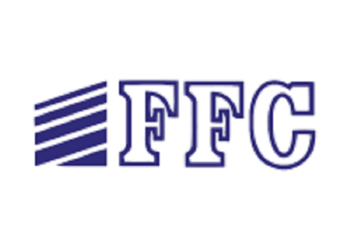The Federal Board of Revenue (FBR), Pakistan’s apex tax authority, has failed to meet its revenue collection targets for the first ten months of the ongoing fiscal year 2024-25, raising concerns about the country’s fiscal health and the government’s ability to meet budgetary obligations.
Revenue Shortfall Reaches Alarming Levels
According to official figures and FBR sources, the tax collection body fell short of its ten-month target by a significant margin. Against the set target of Rs 10,130 billion for the July-April period of FY 2024-25, the FBR managed to collect only Rs 9,300 billion, resulting in a staggering shortfall of Rs 830 billion.
Furthermore, the shortfall continued into April 2025 alone, during which the FBR collected Rs 845 billion in net interim tax revenue. This figure was Rs 118 billion short of the monthly target of Rs 963 billion.
Root Causes Behind the Revenue Deficit
Several underlying issues are contributing to the FBR’s failure to meet its ambitious tax targets. Internal sources attribute much of the decline to ongoing dissatisfaction among FBR employees, who are protesting against the administration’s policies on allowances, rewards, and promotions.
Employee Discontent and Token Protests
FBR employees are currently holding token protests across various cities in Pakistan. They are protesting against what they describe as unfair administrative policies, including:
- Freezing of performance-based allowances for lower-tier staff.
- Provision of a 140% special allowance exclusively to senior officers.
- Unfair and non-transparent reward distribution mechanisms.
These issues have led to decreased motivation and productivity among employees, which in turn is impacting day-to-day tax collection operations. Protesters have warned that if their demands are not addressed soon, they may escalate their agitation to a “pen-down” strike, effectively halting operations across the board.
Impact on Pakistan’s Fiscal Outlook
The FBR’s inability to meet its tax collection targets is likely to have serious consequences for the country’s economic stability. Tax revenue is the backbone of Pakistan’s budget, supporting everything from infrastructure development to social welfare programs. A shortfall of this magnitude could:
- Compel the government to increase domestic or foreign borrowing.
- Lead to the curtailment of public sector development programs (PSDP).
- Disrupt the disbursement of salaries and pensions.
- Hamper the country’s ability to meet its obligations under IMF loan conditions.
Economic analysts are already warning of the potential domino effect on inflation, interest rates, and currency devaluation if the government resorts to deficit financing through borrowing.
Performance Targets and IMF Commitments
Pakistan is currently under a monitoring arrangement with the International Monetary Fund (IMF), which has set strict fiscal benchmarks. The FBR’s failure to meet its tax targets could put the IMF program in jeopardy. It may prompt the global lender to delay future loan tranches or attach stricter conditions to ongoing support.
Experts believe that this shortfall may necessitate a revision of macroeconomic targets and possibly compel the federal government to announce a mini-budget to bridge the fiscal gap.
Historical Context: A Persistent Challenge
This is not the first time the FBR has missed its tax targets. Over the past several fiscal years, the authority has struggled to expand the tax base and improve compliance. Structural issues such as a narrow tax net, widespread tax evasion, corruption, and political interference have historically plagued revenue collection efforts.
While efforts such as digitization, introduction of point-of-sale systems, and real-time invoice monitoring have shown some promise, they have yet to produce consistent results. The ongoing employee unrest only compounds the authority’s longstanding problems.
Need for Structural Reforms and Better Governance
Analysts and former tax officials argue that the situation calls for immediate structural reforms within the FBR. Suggestions include:
- Overhauling the reward and allowance structure to ensure fairness.
- Expanding the tax base to include previously untaxed sectors such as retail, real estate, and agriculture.
- Reducing dependence on indirect taxes, which disproportionately affect the poor.
- Improving transparency and accountability within the organization.
In addition, better stakeholder engagement, especially with FBR employees, is essential to restore morale and rebuild institutional credibility.
Government’s Response and Way Forward
So far, the federal government has acknowledged the FBR’s underperformance but has yet to take decisive steps to resolve the internal conflicts. The Ministry of Finance is expected to hold meetings with FBR officials and union representatives in the coming days to address the impasse.
The upcoming budget for FY 2025-26, due to be presented in June 2025, will be a litmus test of how the government plans to plug the fiscal deficit, either through austerity, additional taxation, or revenue-enhancing reforms.
Conclusion
The FBR’s failure to meet tax collection targets for the first ten months of the fiscal year 2024-25 is a wake-up call for Pakistan’s policymakers. With a revenue shortfall of Rs 830 billion and employee unrest threatening to further disrupt operations, the situation demands immediate attention and comprehensive reforms. Ensuring fair treatment of employees, broadening the tax base, and enhancing compliance are crucial steps to put the tax machinery back on track and secure the country’s fiscal future.

























